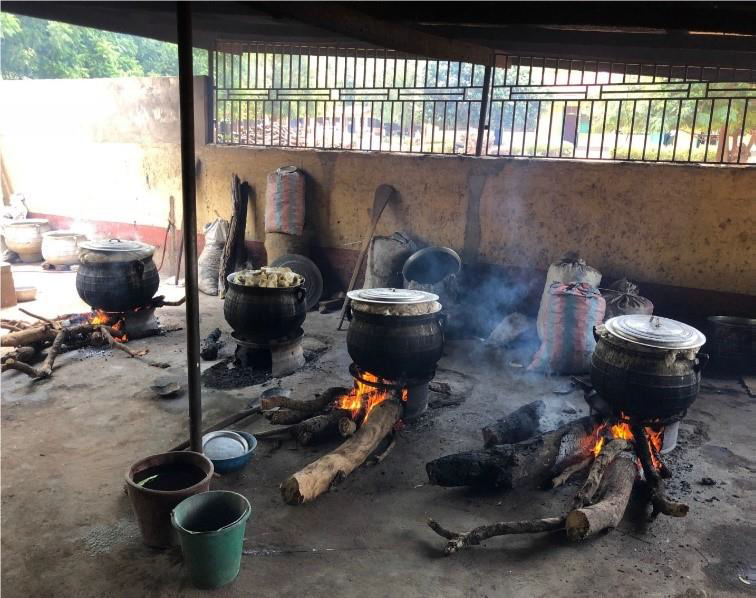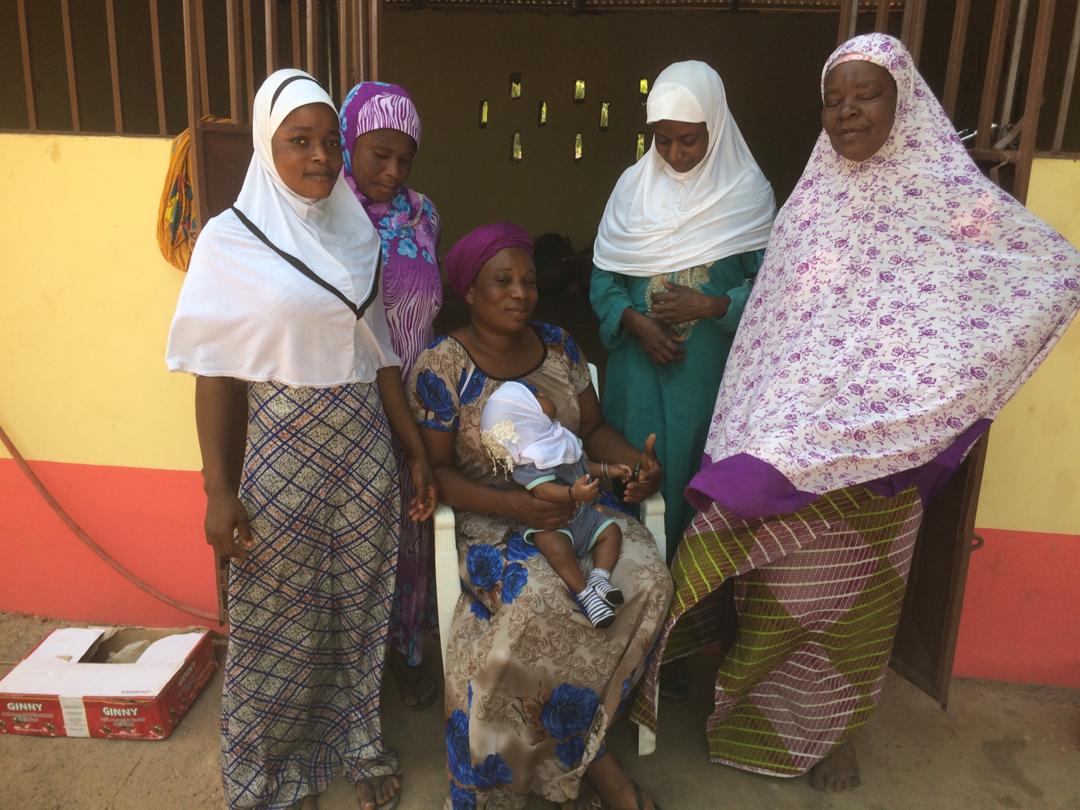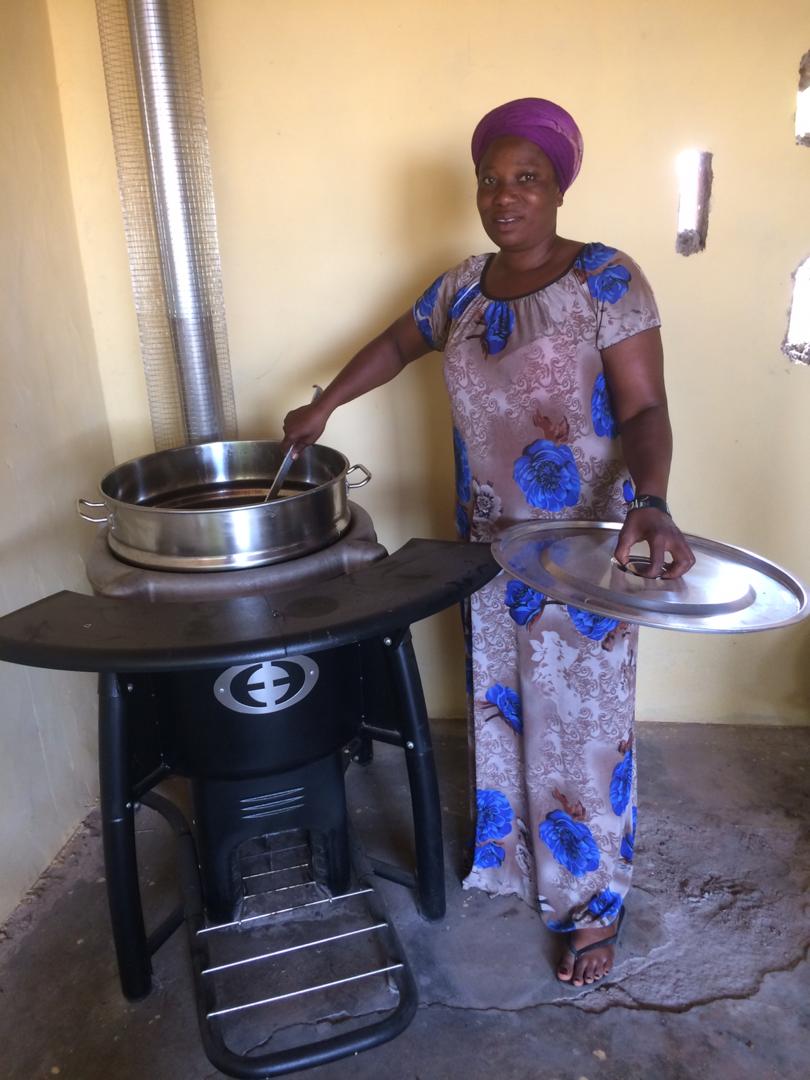Clean cooking makes for happier cooks: One woman’s story from Ghana

Lucy Anipa lives in Ghana, where she works as a member of her local school’s kitchen staff. Lucy used to spend long hours every day inhaling toxic smoke as she prepared meals for students and teachers. Like so many cooks in school kitchens around the world, Lucy cooked over an open fire, a pot boiling over smoking firewood surrounded by large stones.
“My doctor warned me not to go near the fire,” said Lucy, regarding the health impacts she was experiencing due to her job.
In 2018, as part of the Integrated School Kitchen Improvement Project (I-SKIP), a program that provided cleaner cooking solutions to schools across Ghana, Lucy’s school received an improved biomass stove and training on how to use it properly. The program, led by World Education Inc. and supported by the Clean Cooking Alliance, enabled schools to transition from polluting and inefficient stoves and fuels, such as wood or charcoal, to cleaner, more modern cooking technologies.
Two years later, Lucy’s wellbeing has improved noticeably: she feels healthier and safer at work, and she is more productive due to the time-saving benefits of the improved stove, which cooks faster and more efficiently.
Before her school’s transition to cleaner, more efficient technologies, Lucy’s kitchen walls were covered with soot, and the heat and smoke emitted from burning firewood would hinder her and her fellow cooks’ ability to carry out their jobs efficiently.
Once the new stoves were installed, Lucy received training on how to use them correctly and safely and, within a month, she started seeing improvements in the conditions of her kitchen. She was no longer concerned about the smoke and heat, she was able to stop bringing extra clothes to change into when they started to smell like smoke, and she even observed an upgrade in the quality of her meals. “The children love my cooking. I have reduced my wood fuel usage by 70 percent and my food tastes better,” she said.
Lucy also noticed efficiency improvements among the kitchen staff, as they were able to prepare food more quickly and serve meals to the students on time. Lucy was particularly excited about having more time to devote to other tasks around the kitchen.
Lucy is one of 4,700 people who have benefitted from I-SKIP, which introduced clean cooking to 10 schools in Ghana. During the transition, the project established a set of best practices for adoption, integration, and consistent use of the new cooking technologies, and promoted clean kitchens as “living laboratories” where students and faculty could learn about the benefits of clean cooking. Across the project, 85 percent of students and 100 percent of kitchen staff reported improved knowledge of clean cooking solutions. Lucy and her fellow cooks are excited about the benefits that clean cooking has brought to their school and daily routines, many of whom have adopted clean cooking solutions in their own homes.


